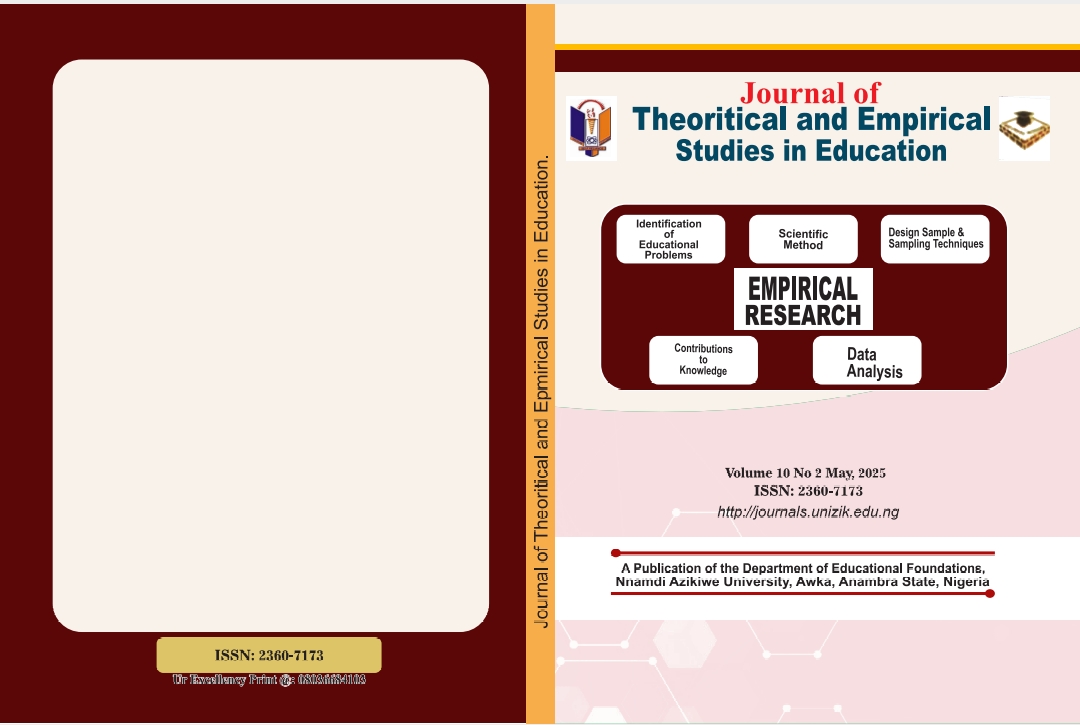Teachers' Classroom Motivational Strategies and Student Academic Achievements in Junior and Senior Secondary Schools in Anambra State, Nigeria
Keywords:
Teachers' classroom motivational strategies, Academic achievement, Intrinsic motivation, Extrinsic motivation.Abstract
This study investigated the relationship between teachers' motivational strategies
and students' academic achievement in secondary schools in Anambra State,
Nigeria. The research was guided by 3 research questions and 3 hypotheses. The
research employed a correlational design, with a sample of 300 students selected
through multi-stage sampling from 30 secondary schools across six Local
Government Areas. Data were collected using the Teachers' Motivational
Strategies Questionnaire (TMSQ) for Teachers’ Classroom Motivational
Strategies and Students' Academic Achievement Records (SAAR) to measure the
students’ academic achievements. The instruments demonstrated high reliability
with a Cronbach's alpha of 0.84. Data analysis involved descriptive statistics and
Pearson's correlation. Findings revealed significant positive relationships
between teachers' motivational strategies and students' academic achievement (r
= .643, p < .01). Intrinsic motivational strategies showed the strongest correlation
with academic achievement (r = .704, p < .01), followed by extrinsic motivational
strategies (r = .582, p < .01). The results indicate that both intrinsic and extrinsic
motivational strategies contribute significantly to students' academic
achievement, with intrinsic strategies showing stronger influence. Based on these
findings, the study recommends enhanced teacher training programs focusing on
effective motivational strategies, particularly those fostering intrinsic motivation.
The study contributes to the understanding of the role of teacher motivational
strategies in improving academic achievement in Nigerian secondary schools.




